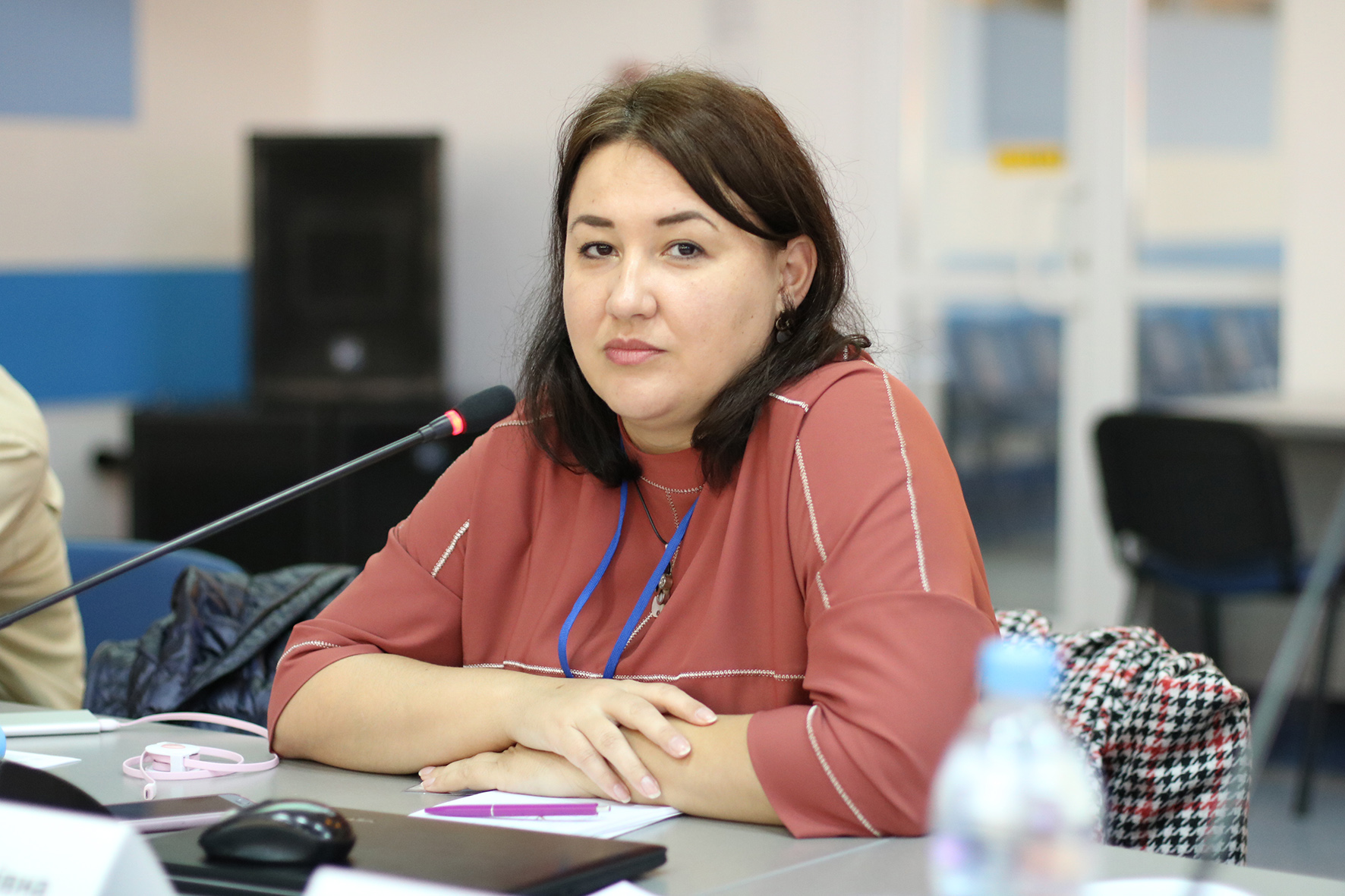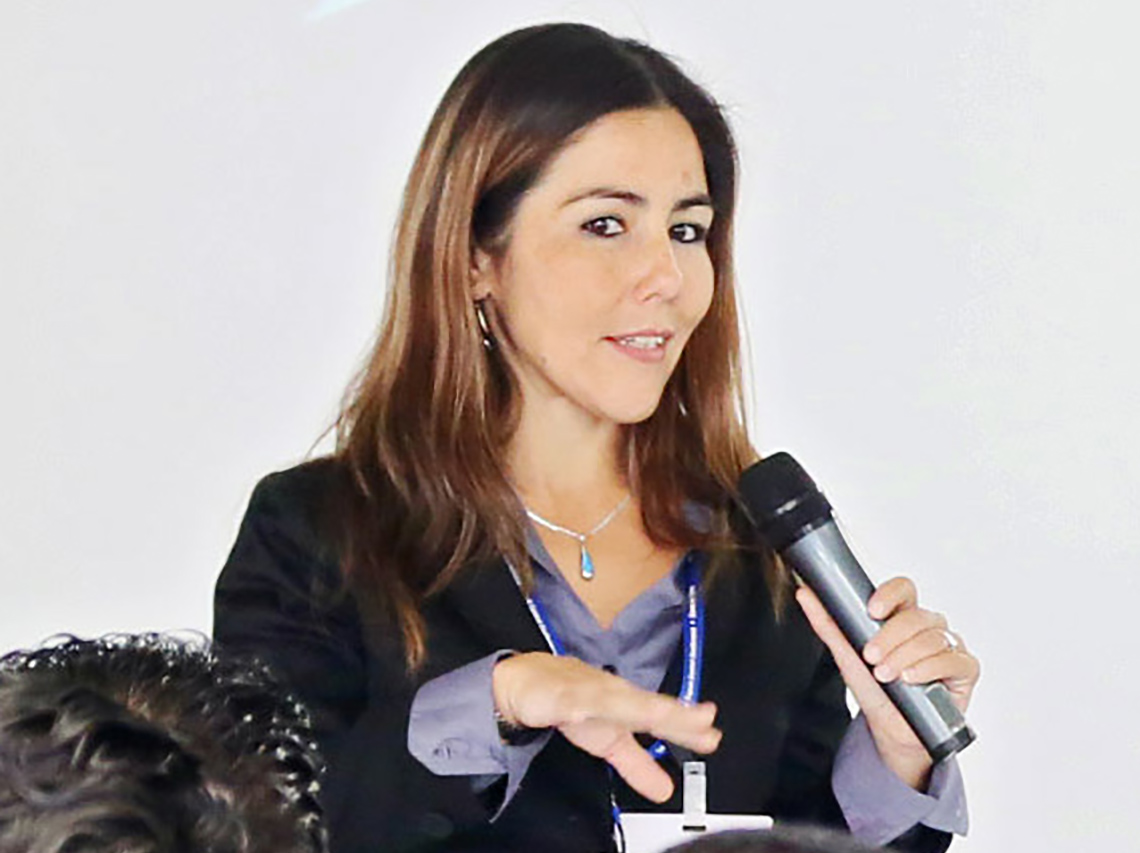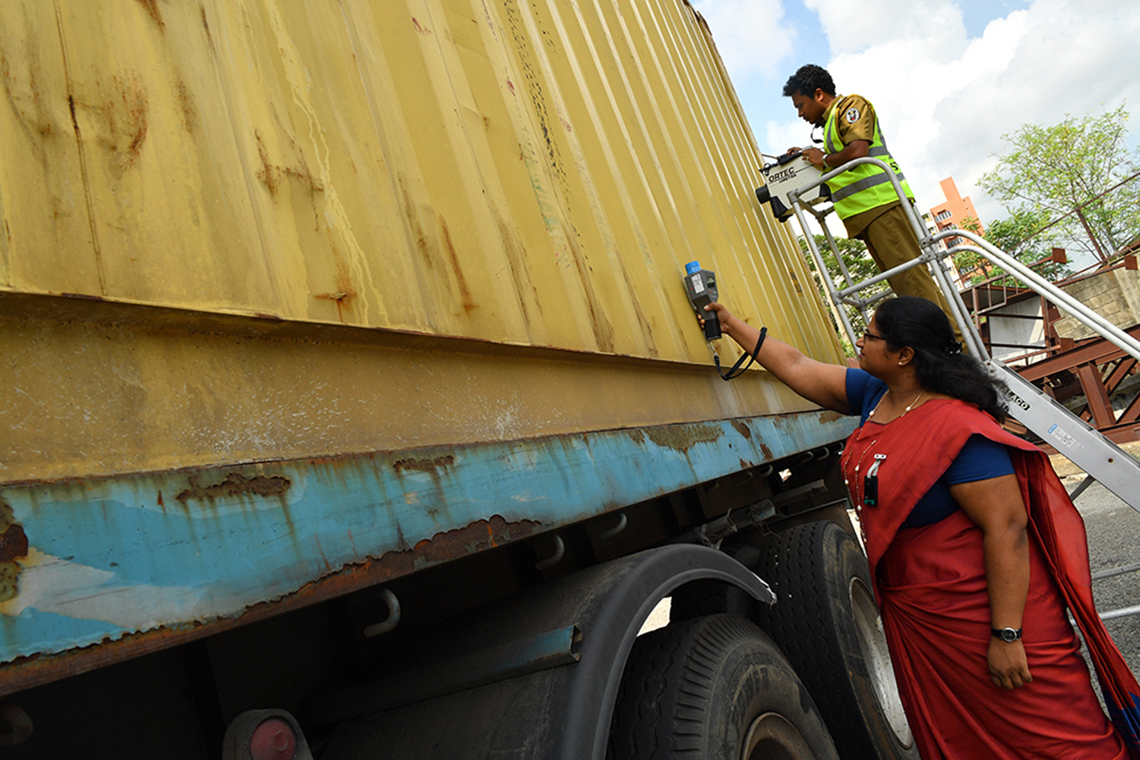Women have a growing presence in nuclear security and the nuclear field more broadly, but they continue to be underrepresented. We spoke to senior women in nuclear security to hear about their experiences, opportunities and challenges in the field.
Encouraging Women to Take a Stronger Role in Nuclear Security
Nataliia Klos, Chief Specialist in Physical Protection at Ukraine’s Ministry of Energy and Environmental Protection

While getting her master’s degree in public administration, Nataliia Klos had her first exposure to nuclear security as an intern in physical protection at Ukraine’s Ministry of Fuel and Energy, which is now the Ministry of Energy and Environmental Protection.
After graduating and being hired by the Ministry, Klos’ understanding of nuclear security deepened through her involvement with International Physical Protection Advisory Service (IPPAS) missions hosted by Ukraine.
“Soon after I began work, I started visiting nuclear power plants as part of IPPAS missions,” Klos said. “Seeing some of these plants in person, while knowing the history of nuclear power and what could go wrong, helped me realize the essential nature of physical protection work and how it keeps people and the environment safe.” She has since also served as an expert on an IPPAS mission to support other countries.
Alongside her main job, Klos is setting up a master’s degree programme on physical protection in Kyiv. Her aim is to help young people acquire the necessary knowledge to work in this field and increase the number of specialists available in Ukraine, which has a large nuclear power programme.
Education and training, Klos said, can assist people with making their voices heard, which is still a challenge for women in the field. “I work with a lot of people from law enforcement. They usually listen to men first, and then later, they might listen to women. I’ve even been told that women shouldn’t work and should stay at home. But work is a right, regardless of gender.”
Klos encourages interested young professionals to pursue careers in nuclear security despite these challenges. “Times are changing, and there are more opportunities for women in nuclear security than before,” she said. “My advice is to learn as much as you can, as knowledge opens doors. You never know what will be useful in the future.”
Judith Rodríguez Bustamante, Deputy Administrator of International Affairs at the General Customs Administration in Mexico

When Judith Rodríguez Bustamante started working to help strengthen nuclear security at the Mexican General Customs Administration, the topics were foreign to her, and the learning curve was steep. Now, Rodríguez Bustamante has over ten years of experience as an expert and organizes workshops and training courses for customs officials and people from other agencies.
With her expertise in the prevention of illicit trafficking in nuclear and other radioactive material, Rodríguez Bustamante was invited to join the IAEA’s Advisory Group on Nuclear Security (AdSec) as a senior nuclear security expert. This group, comprising IAEA and international experts, advises the IAEA Director General on nuclear security activities worldwide. “Sharing a table with other nuclear security experts from around the world has enriched my knowledge of nuclear security issues,” she said.
Though she now finds herself at many tables in the field, she pointed out that there continues to be a noticeable gender imbalance. “It is a great challenge to make the voices, experiences, tenacity and knowledge of women in nuclear security heard,” she said. “I am pleased to see that, at IAEA meetings, there is a parity of men and women; however, in many of the security meetings I attend through my work, there are still only two or three women at a table of thirty male participants.”
To help change this, Rodríguez Bustamante said, anyone entering the field should have an open mind and a lifelong commitment to learning, and the women already in the field should remember that “in our daily work as women in the field, we are creating space for those who come after us”.
Nirasha Rathnaweera, Scientific Officer in the Radiation Protection and Technical Services Division of Sri Lanka’s Atomic Energy Board

If a customs officer at the Port of Colombo in Sri Lanka hears a radiation alarm go off, Nirasha Rathnaweera is one of the first people called. As part of an expert support team that assesses possible nuclear security alarms at this port, Rathnaweera uses radiation detection instruments to inspect the cargo container that sets off the alarm and verify whether it contains radioactive material. This helps the authorities determine what to do next.
“Over the last four years, our team has helped make about 14 confirmed detections,” she said. “At the same time, I have conducted training courses for first responders to a nuclear security event on detection strategies for border monitoring and provided them with technical expertise.” In addition to these responsibilities, Rathnaweera works as a Scientific Officer at the Sri Lanka Atomic Energy Board and is the Chief Scientific Investigator for an IAEA coordinated research project on improved assessment of initial alarms.
While Rathnaweera’s work schedule is busy, sometimes requiring her to be on call around the clock, one of the main challenges she said she faces is related to her gender. “People often assume that, because I’m a woman, I don’t have enough knowledge to be in the field,” she said. “But once they work with me, they understand that this isn’t true. They then understand what I know and what they can learn from me."
She explained that this may be because there are still too few women with the appropriate expertise and education. “We need to provide more women with the knowledge to work on radiation detection issues,” she said. “Women who are interested in this topic shouldn’t consider gender. If they want to be in this field, they should go for it.”
Collecting and sharing these stories is part of the IAEA’s ongoing efforts to change the narrative and take action to help empower women and increase their representation in nuclear security and the nuclear field more broadly.
